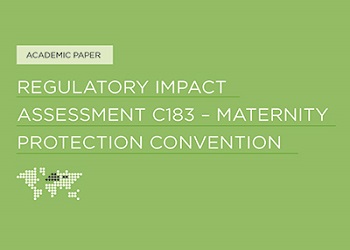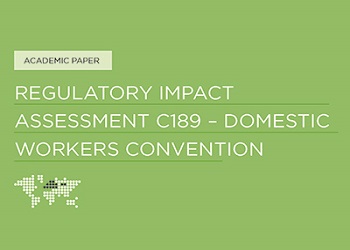- Details
The Maternity Protection Convention, 2000 (No. 183), was established by the ILO to promote “equality of all women in the workforce and the health and safety of the mother and child”. The Convention sets minimum standards that need to be implemented in order for pregnant women and working mothers to be adequately protected in the labour market. The Convention has so far been ratified by 38 ILO member countries. Georgia, a member of the ILO since 1993, has not yet ratified the Convention. Even as the Labour Code of Georgia made significant progress over the past decade (e.g. increasing the ceiling on paid maternity leave benefits in 2013 and introducing the paid parental leave concept in 2020), important maternity protection aspects of the law have not yet received proper attention. As a result, even the most recent Georgian labour legislation (adopted in September 2020) still comes short of the standards set by the ILO Maternity Protection Convention. In addition to the Convention’s standards, Georgia has committed to harmonizing and updating its legislation in line with that of the EU within the framework of the 2014 Association Agreement (AA). Among the relevant legislative themes are labour law, anti-discrimination and gender equality, as well as health and safety at work. While this current commitment does not mean that Georgia would be responsible for directly transposing EU legislation into its own legal framework, nor does it set the timeline for updating some of the newer standards, the general principles of the EU labour and social protection law would have to be at least considered by the Georgian legislators.
- Details
The International Labour Organization (ILO) Domestic Workers Convention, 2011 (No. 189), aims to promote decent work for all and to ensure fundamental protections and rights to domestic
workers. Domestic workers’ contribution to the economy is substantial by providing critical services to households and enabling others to work outside the home, participate in the labour market and pursue educational and social activities. However, promoting decent work for domestic workers has not been a priority for the Government of Georgia thus far. The harmonization of the Georgian legislation with ILO Convention No. 189 would be essential for domestic workers, especially for women as they constitute the majority of domestic workers.


